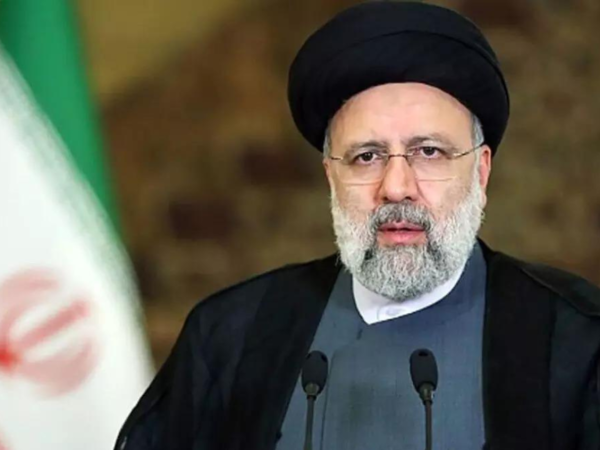When the scanty news of the probable death, in a helicopter crash, of the Iranian President, Ebrahim Raisolsadati, commonly known as Ebrahim Raisi, filtered into the newsrooms early in the week, the initial reaction was a cautious wait.
When the tragedy was later confirmed, it sent shockwaves across the Middle East and, indeed, the world. What followed were questions about the potential geopolitical ramifications of his passing. Experts, however, believe that the immediate impact on regional security will be minimal because there is relative bureaucratic inertia in terms of policy in that Islamic country, such that even if the leader at the top is removed, the overall policies remain the same.
Observers also pointed out that strategic decisions in that country are set by the supreme leader who directs national security policies assisted by the Iranian Revolutionary Guard Corps (IRGC).
Regardless, they felt concerned that the long-term consequences could be significant. Iran, it must be noted, has immense influence in the Middle east which became widespread under the late Raisi. That nation is fighting the current war in the region- in Syria, Yemen, Israel largely through proxy groups such as Hezbollah, the Houthis, or Hamas.
It is instructive to point out that as soon as the death of Raisi was confirmed, Israel made haste to state that they had nothing to do with the sad incident. In the United States of America, the mood was different as the state department described the late leader as a “brutal participant in the repression of the Iranian people for nearly four decades”.
It went on to accuse Raisi of involvement in numerous horrific human rights abuses, including playing a key role in the extra judicial killing of thousands of political prisoners in 1988. However, it went on to express regret over the loss of life. “We don’t want to see anyone die in a helicopter crash. But that doesn’t change the reality of his record, both as a judge and as the president of Iran, the fact that he has blood on his hands”.
In apparent reaction, sources in Iran blamed the crash on the sanctions by the United States which made it difficult for that country to have stress- free aviation operations and even said that the crash was part of US’ crimes against the people of Iran. Condolences started pouring in from neighbours and allies as soon as Iran confirmed there were no survivors from the crash.
Pakistan announced a day of mourning and Indian Prime Minister Narendra Modi said that his country “stands with Iran in this time of sorrow.” Leaders of Egypt and Jordan also offered condolences, as did Syrian President Bashar Assad. Lebanon and Syria both declared three days of mourning. Azerbaijan’s President Ilham Aliyev said he and his government were “deeply shocked” by the tragedy. Raisi was returning on May 19 after traveling to Iran’s border with Azerbaijan to inaugurate a dam with Aliyev when the crash happened. Turkish President Recep Tayyip Erdogan and China’s Xi Jinping conveyed their condolences. Russian President Vladimir Putin, in a statement released by the Kremlin, described Raisi “as a true friend of Russia.”
As is to be expected, numerous Arab countries expressed their condolences. Qatari Emir Tamim bin Hamad al-Thani, offered his sincere condolences to the government and people of the Islamic Republic of Iran.
The government in Baghdad expressed its sympathy, while Lebanon on its part, announced a three-day mourning period. The African Union (AU) extended its condolences over the tragic death of Raisi and several senior Iranian officials. Chairperson of the AU Commission, Moussa Faki Mahamat, expressed his deep shock and sadness over the passing of the Iranian president, the country’s foreign minister and their companions. He extended his sincere condolences, deep sympathy and the solidarity of the African Union to the bereaved families, Supreme Leader Ali Khamenei, the Iranian government and people during this time of deep sorrow.
The North Atlantic Treaty Organization (NATO) expressed its condolences, while the UN Security Council observed a minute of silence. President Bola Ahmed Tinubu, on his part, joined other world leaders, to condole with the government and people of the Islamic Republic of Iran over the death of President Raisi;
Iranian foreign minister and other officials in that crash. Raisi began his clerical studies at age 15 and served in several positions in Iran’s jdicial system, including as Prosecutor of Karaj, Prosecutor of Hamadan and Deputy Prosecutor and Prosecutor of Tehran.
He was later Deputy Chief Justice (2004–2014), Attorney General (2014–2016), and Chief Justice (2019–2021), Custodian and Chairman of Astan Quds Razavi, a bonyad, from 2016 until 2019. He ran for president in 2017 as the candidate of the conservative Popular Front of Islamic Revolution Forces, losing to moderate incumbent president Hassan Rouhani. He successfully ran a second time in 2021 and won. Ebrahim Raisi was born on 14 December 1960. May his soul rest in peace.





